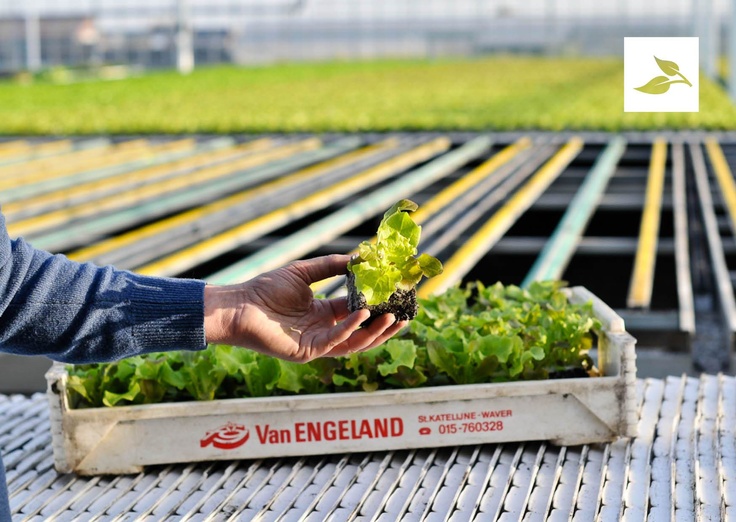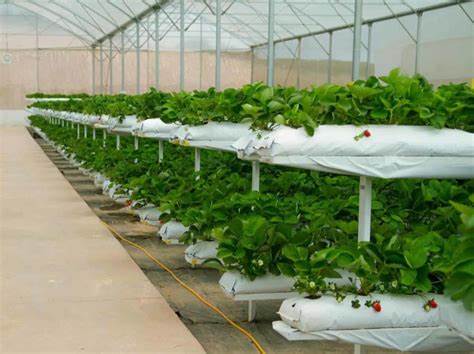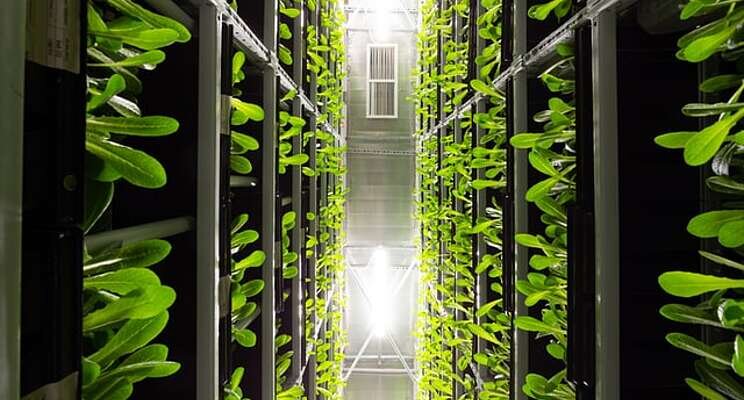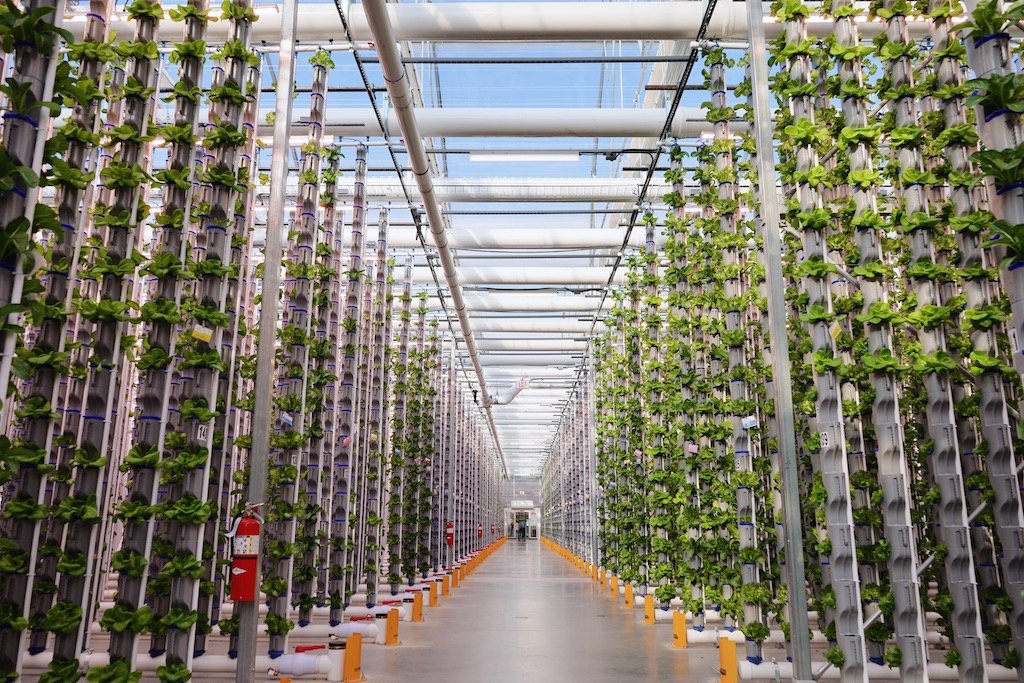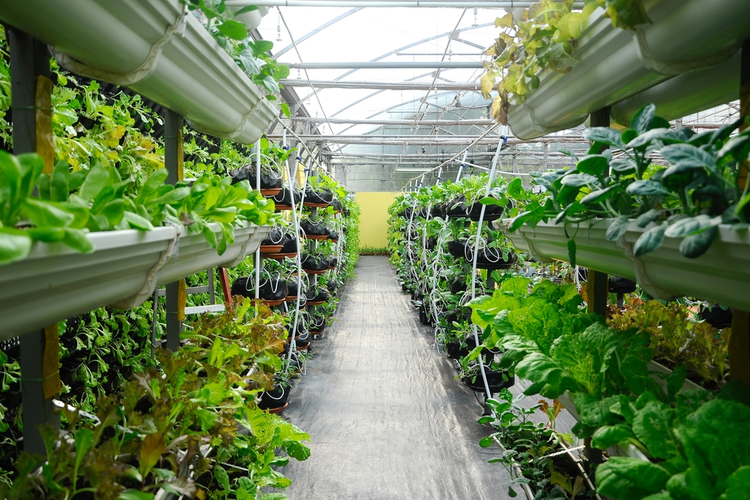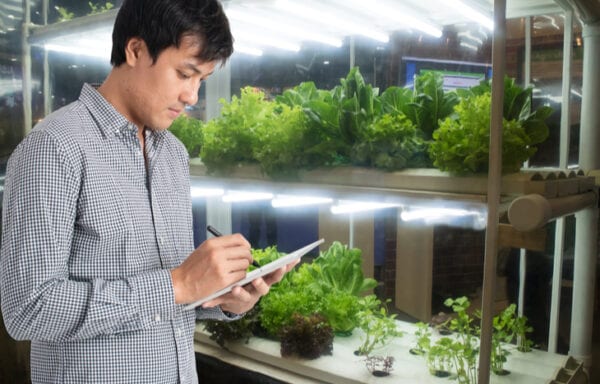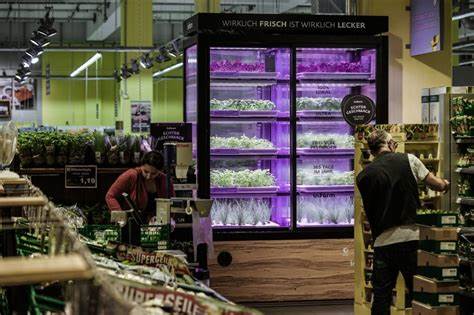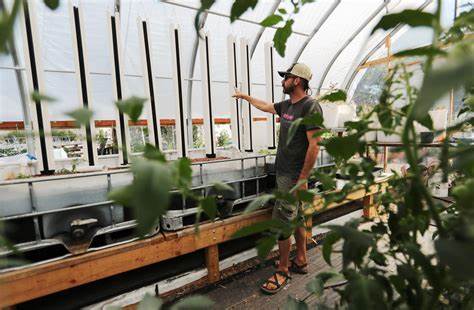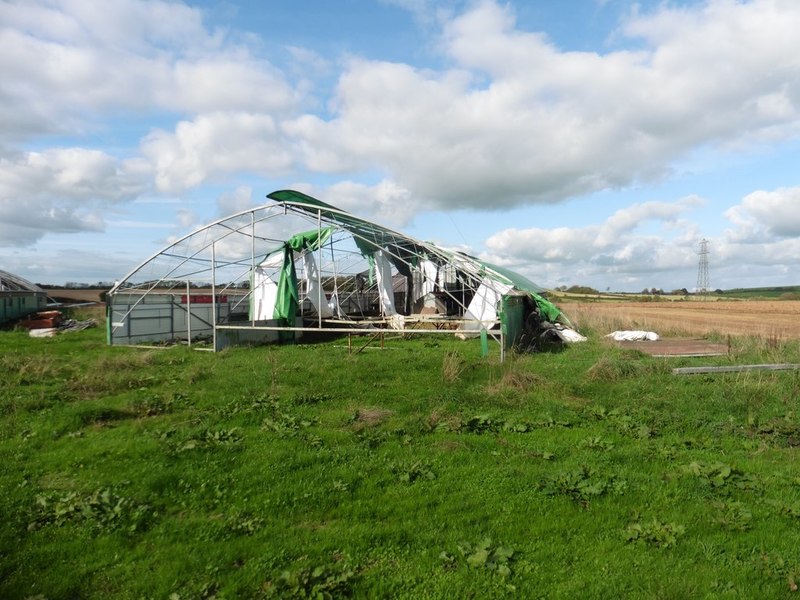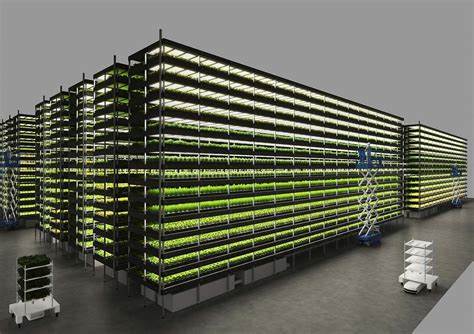Vertical Farming and Soil Regeneration: Revolutionizing Sustainable Agriculture Introduction Vertical farming and soil regeneration are two crucial concepts that are revolutionizing sustainable agriculture. This article delves into the historical background, key concepts, benefits, case studies, current trends, challenges, and future implications of vertical farming and soil regeneration. Historical Background Vertical farming can be traced back to the Hanging Gardens of Babylon, one of the Seven Wonders of the Ancient World. However, the modern concept gained prominence in the early 21st century with the development of advanced technologies and the need for sustainable food production. Similarly, soil regeneration techniques have evolved…
Author: sohailkhan2k22
Introduction Vertical farming is a groundbreaking agricultural practice that offers a sustainable solution to reduce food waste. This article provides an overview of vertical farming’s relevance in addressing the pressing issue of food waste and its impact on the environment, economy, and society. Historical Background The concept of vertical farming has evolved over time, driven by the need to maximize agricultural productivity in limited urban spaces. Early pioneers in vertical farming explored ways to optimize crop production in vertically stacked layers. Key Concepts and Definitions Vertical farming is the cultivation of crops in vertically stacked layers or structures, using advanced…
The Significance of Growing Media in Gardening and Horticulture Introduction Growing media selection is a critical factor in gardening and horticulture practices, directly influencing plant growth, nutrient uptake, and overall health. This article explores the three primary options for growing media: Coconut Coir, Rockwool, and Peat Moss. Each of these media offers unique characteristics and benefits, making them suitable for various applications in gardening and horticulture. Historical Background Coconut Coir, derived from the fibrous outer husk of coconuts, has been utilized in gardening for centuries. Its origins can be traced back to ancient Sri Lanka, where its effectiveness as a…
Introduction Vertical farming has gained significant attention in recent years as a sustainable solution to food production in urban areas. This article explores the use of substrates in vertical farms and their importance in enhancing efficiency and reducing environmental impact. Historical Background Vertical farming has a rich history dating back to ancient civilizations. Over time, there has been a significant evolution in the substrates used in vertical farms, with a shift towards more sustainable options. Key Concepts and Definitions Sustainable substrates are materials that provide support, nutrients, and water to plants in vertical farms while also minimizing environmental impact. Factors…
Vertical Farming: Revolutionizing Agriculture for a Sustainable Future Introduction Vertical farming is a groundbreaking agricultural practice that has gained significant attention in recent years. This article explores the concept, key concepts and definitions, main discussion points, case studies, current trends and developments, challenges and controversies, future outlook, and concludes with the significance and potential of vertical farming. Historical Background Early pioneers in vertical farming laid the foundation for this innovative approach. Over time, techniques evolved, leading to the adoption and growth of this sustainable farming method. Key Concepts and Definitions Hydroponics: A method of growing plants without soil, where plants…
Vertical Farming: Revolutionizing Modern Agriculture Introduction Vertical farming has emerged as a revolutionary concept in modern agriculture, offering a solution to the challenges posed by traditional farming methods. This innovative approach involves growing crops in vertically stacked layers, utilizing artificial lighting and hydroponics or aeroponics systems. The benefits of vertical farming are numerous, including increased crop yields, reduced water usage, and year-round production. In this article, we will explore the historical background, key concepts, main discussion points, case studies, current trends, challenges, and future outlook of vertical farming. Historical Background The concept of vertical farming dates back to the Hanging…
Maintaining Vertical Farm Systems: A Path to Sustainable Agriculture Introduction Vertical farming has gained significant attention in recent years as an innovative and sustainable approach to agriculture. This article provides a comprehensive overview of vertical farm systems, exploring their historical background, key concepts, main discussion points, case studies, current trends, challenges, and future outlook. By delving into the intricacies of vertical farming, we aim to emphasize its importance and potential in achieving sustainable food production. Historical Background The concept of vertical farming can be traced back to the Hanging Gardens of Babylon, one of the Seven Wonders of the Ancient…
The Revolution of Vertical Farming: Exploring Benefits, Technologies, and Future Implications Introduction Vertical farming has gained significant attention in recent years as a groundbreaking concept in agriculture. This article provides an in-depth exploration of vertical farming and its relevance in today’s world. It also highlights notable vertical farming projects globally, emphasizing their potential benefits and impact on food production and sustainability. Historical Background To understand the evolution of vertical farming, it is important to delve into its historical context and significant milestones. This section uncovers the origins of vertical farming and discusses influential figures who have contributed to its development…
Vertical Farming: A Sustainable Solution for Urban Food Deserts Introduction In today’s rapidly urbanizing world, access to fresh and nutritious food has become a pressing concern, particularly in densely populated cities. This article aims to explore the concept of vertical farming and its relevance in addressing urban food deserts. By finding innovative solutions to cultivate food in limited spaces, vertical farming has the potential to revolutionize urban agriculture and ensure food security for all. Historical Background Vertical farming has a rich history, with key milestones and developments shaping its evolution. The concept can be traced back to the Hanging Gardens…
Optimizing Water and Energy Efficiency for Sustainable Agriculture Introduction Vertical farming has emerged as a revolutionary approach to sustainable agriculture, utilizing vertical space to cultivate crops in urban environments. This innovative practice not only maximizes land use but also offers a solution to the challenges posed by traditional farming methods. In this article, we will explore the importance of water and energy efficiency in vertical farms, highlighting the key strategies and technologies that contribute to their optimization. Historical Background The concept of vertical farming can be traced back to the Hanging Gardens of Babylon, showcasing humanity’s early attempts to cultivate…
Vertical Farming: Revolutionizing Agriculture and Reducing Food Waste Introduction Vertical farming is an innovative approach to agriculture that involves growing crops in vertically stacked layers, using indoor farming techniques such as hydroponics and aeroponics. This concept has gained significant attention due to its potential in reducing food waste, a pressing issue in today’s world. By maximizing land and resource use, vertical farming offers a sustainable solution to ensure food security while minimizing environmental impact. Historical Background The origins of vertical farming can be traced back to the Hanging Gardens of Babylon, one of the Seven Wonders of the Ancient World.…
Vertical Farming: Revolutionizing Agriculture for a Sustainable Future Introduction Vertical farming has emerged as a significant solution to address the challenges of food security, urbanization, and climate change. This innovative farming method offers a sustainable approach to agriculture by utilizing limited space, conserving resources, and reducing environmental impact. In this article, we will explore the concept of vertical farming, its historical background, key concepts and definitions, and its importance for sustainable agriculture. Historical Background The origins of vertical farming can be traced back to the Hanging Gardens of Babylon, one of the Seven Wonders of the Ancient World. However, it…
Financing and Investment in Vertical Farms: Unlocking the Potential of Sustainable Food Production Introduction Vertical farming is a revolutionary concept gaining popularity worldwide. This innovative approach to agriculture involves growing crops in vertically stacked layers, utilizing limited space and resources. As the demand for sustainable and locally sourced food increases, financing and investment in vertical farms play a crucial role in driving this industry forward. In this article, we will explore the historical background, key concepts, financing options, factors affecting investment, risk management strategies, case studies, current trends, challenges, future outlook, and the significance of financing and investment in vertical…
Vertical Farming: Ensuring Safety and Sustainability Introduction Vertical farming has gained significant popularity as a revolutionary agricultural practice in recent years. This method involves cultivating crops in vertically stacked layers using innovative technologies such as hydroponics and aeroponics. To ensure the safety, sustainability, and success of vertical farming operations, regulations and permits play a crucial role. Understanding the regulatory framework is essential for potential farmers and investors in this rapidly evolving sector. Historical Background While the concept of vertical farming can be traced back to the 20th century, it gained traction in the early 21st century. Pioneers in the field,…
Vertical Farming: Revolutionizing Local Food Movements Introduction In recent years, the concept of vertical farming has gained significant attention as a promising solution to meet the growing demand for fresh and sustainable food. This article explores the historical background, key concepts, benefits, case studies, and challenges associated with vertical farms in local food movements. By examining the relevance and importance of vertical farms, we can better understand their impact on food production, environmental sustainability, and the future of agriculture. Historical Background Local food movements have evolved over time in response to concerns about food safety, environmental impact, and the desire…
Introduction Vertical farms have emerged as an innovative solution to address the challenges of sustainable food production and shorten the supply chain. In this article, we will explore the historical background of agriculture and the need for sustainable practices. Additionally, we will discuss the relevance and importance of vertical farms in modern society. Historical Background Evolution of agriculture and the need for sustainable food production Throughout history, agriculture has played a crucial role in providing sustenance for human populations. However, traditional farming practices have led to environmental degradation and resource depletion. The need for sustainable food production practices has become…
Vertical Farms and Grocery Stores: Revolutionizing the Future of Food Introduction The world’s population is rapidly growing, and with it, the demand for sustainable and efficient food production. This has led to the emergence of vertical farms and the continued development of grocery stores as crucial components of the food supply chain. In this article, we will explore the historical background, key concepts, main discussion points, case studies, current trends, challenges, controversies, future outlook, and the importance of vertical farms and grocery stores in the future food system. Historical Background The concept of vertical farms can be traced back to…
Introduction The concept of vertical farming has gained significant traction in recent years, revolutionizing the traditional agricultural landscape. As the global population continues to grow, the need for sustainable and efficient food production methods becomes increasingly crucial. Vertical farming offers a promising solution by utilizing innovative technologies and cultivation methods to maximize crop yield while minimizing resource consumption. This article delves into the success stories of vertical farming entrepreneurs, exploring the factors that contribute to their achievements and the potential implications for the future of food production. Historical Background Vertical farming has evolved from conventional agricultural practices, marking a significant…
Transforming Abandoned Buildings into Vertical Farms: Revolutionizing Urban Agriculture for Food Security Introduction The concept of transforming abandoned buildings into vertical farms has gained traction as a solution to urban agriculture and food security challenges. By utilizing unused urban spaces, vertical farming offers the potential to increase food production, reduce transportation costs, and promote sustainable agriculture. This article explores the historical background, key concepts, benefits, case studies, current trends, challenges, and future outlook of vertical farming in abandoned buildings. Historical Background Vertical farming has evolved over the years, with innovative techniques and technologies being developed to maximize agricultural productivity in…
Vertical Farms in Industrial and Retail Spaces: Revolutionizing Urban Agriculture Introduction Vertical farming is an innovative approach to agriculture that has gained significant traction in recent years, particularly in urban areas where land is limited. By utilizing vertical space within industrial and retail spaces, this modern farming method offers numerous advantages and opportunities for sustainable food production. This article aims to explore the concept of vertical farming in industrial and retail spaces, its historical background, key concepts, main discussion points, case studies, current trends, challenges, future outlook, and the significance of this revolutionary approach. Historical Background Vertical farming has roots…





